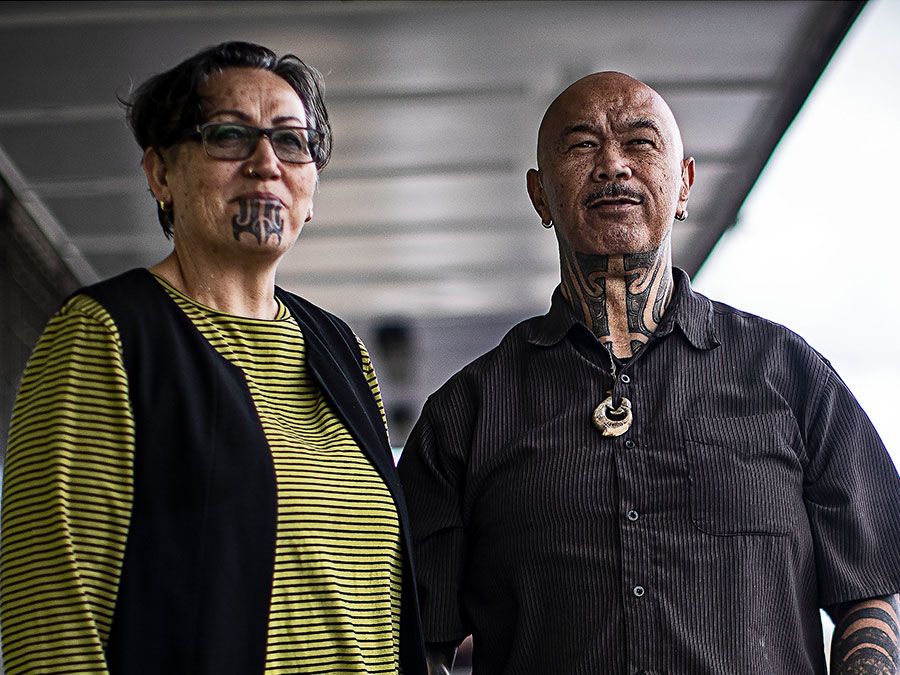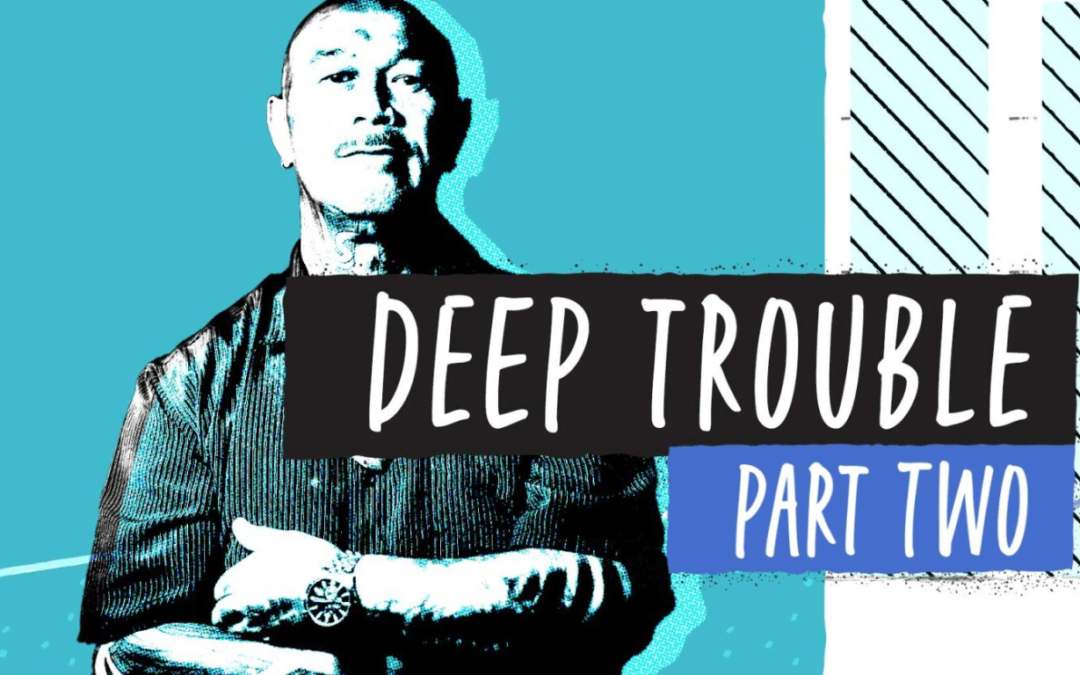Deep Trouble – Part Two
Half the interior of the clubrooms of the City Rugby Club, in the Whangarei suburb of Otangarei, is filled with stacks of cardboard boxes stamped with the Ministry of Social Development’s logo.
About 15,000 have been dispatched from here, filled with either food or hygiene products, to families across the north by the Te Hau Āwhiowhio ō Otangarei trust. Fortunately, the trust’s chief executive, Martin Kaipo, is also the rugby club president. Kaipo wears many hats in a community he knows intimately.
Otangarei, a couple of kilometres from the city centre, is a suburb of low-slung, pastel-coloured houses, almost half of them owned by the state.
The trust’s head office sits in the main parade of shops. From the doorway, operations manager Janine Kaipo (Martin’s wife) eyes up two young men doing a burnout outside. “Just testing they’ve got enough tread on the tyres,” she says wryly.

Source: Stuff
When we wander outside, a couple of Black Power members give Martin Kaipo what Paddington Bear would call a hard stare. Completely unaffected, he returns the glance, and saunters on. “See, just like Once Were Warriors,” he says drily.
Kaipo points around at the various buildings the trust now leases, and those he has ambitions for. With 50 staff, he says they are the biggest employers in the suburb.
A majority of his staff were unemployed when he recruited them. Some were gang members, whom he told to “to relinquish their past”.
“There’s a choice: you can be a servant to the trust, or a servant of your cause.”
Kaipo himself did the same, many years ago. He was a Black Power chapter president who quit when his brother was convicted of murder. He’s been shot at and had arson attacks but is entirely unbothered by it, and has built the trust up over almost three decades to provide a range of social services to his community, while also studying for bachelor’s and master’s degrees.
A deep recession would affect Otangarei’s people more than most. Compared with the rest of the country, more people here live in state houses, have a lower level of formal education, are in single-parent homes, or have manual jobs.
At the 2018 census, only 7 per cent of residents had a personal income over $50,000 – against over 31.5 per cent nationally. At the same census, 22.1 per cent of people were unemployed against a national figure of 5.8 per cent.
Māori unemployment will almost certainly end up at double the national rate. Four out of five people in Otangarei are Māori.
This is a community that knows the raw impact of widespread joblessness. As the unemployment crisis created by Covid-19 develops, more communities will come to know the hardship that’s familiar to places like Otangarei. And the struggle for people in places like Otangarei will become greater.
But Janine and Martin Kaipo aren’t afraid of the future.
“I don’t see doom and gloom,” Janine Kaipo says.
“I think this is one time our resilience will come into play and we will help people move. I think new jobs will be created and the Kiwi ingenuity will kick in.”
“I am actually excited. I am not thinking ‘poor old New Zealand’. I think we will turn on a dime and be very resilient.”
Read the full article on the Stuff NZ website.

